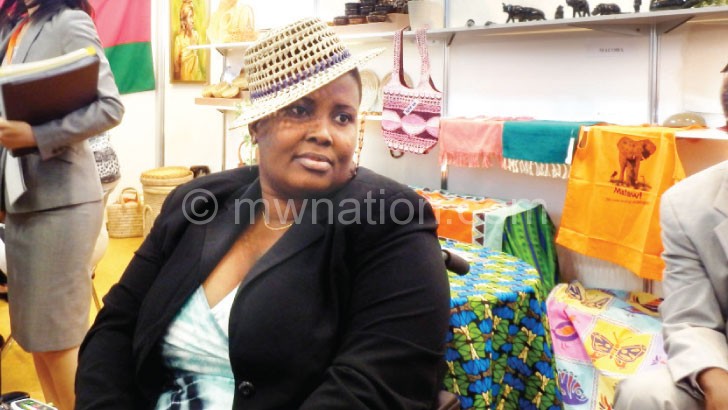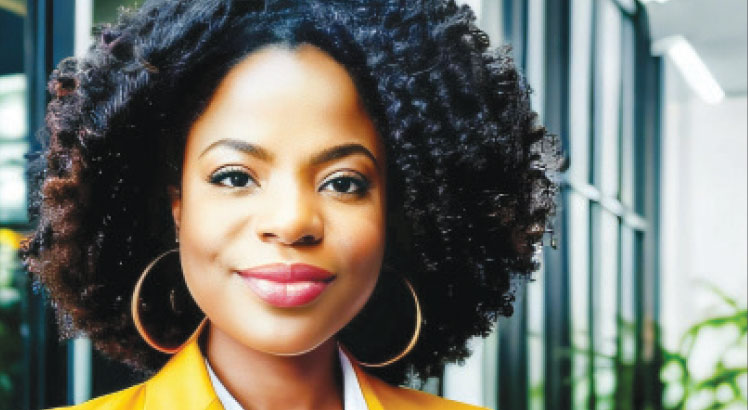Scader louis: rose above her trial to embrace disability
Over a decade ago, 34-year-old Scader Louis was involved in a minibus accident which left her with a spinal cord injury. Regardless of the obstacles, she made every attempt to continue living life just the way she did before the accident, only now a little differently—smarter and with more appreciation. She admits she misses how things used to be, but she also says she has accepted the fact that things have changed. In this interview with Brenda Twea, Louis recounts how life has been for her, over the years.
At 23, Scader Louis- who was born to late Mr. and Mrs. Ronald Louis- was involved in a minibus accident on her way from school. She sustained a back injury at T12 (a type of spinal cord injury) and stayed in hospital/rehabilitation centre for six months.
The accident happened when she had just embarked on her diploma studies in accounting at Malawi College of Accountancy. A year later in January 2005, she enrolled for weekend classes with Pact College and restarted her course.
“Life at school was very difficult, especially managing myself as I had to be at school all day. Fast forward, God’s grace is sufficient and I completed my accounting studies and became a chartered accountant with the Association of Certified Chartered Accountants (Acca) in 2010,” she says.
The spinal cord injury (SCI) completely changed her life and 12 years down the line, she says she has come to terms with the fact that she will never walk again.
“I know people may react differently to this statement. I truly believe that God’s beautiful plan and interest upon my life does not change because I’m disabled. In fact, in realising and accepting my physical weakness, I’m very much stronger in spirit. I believe God’s love is far greater now than ever.
“I don’t know what my life would have been if I were not disabled. I thank God for my disability which has taught me to be humble and appreciative of little things we often take for granted,” says the woman who believes that disability is power.
In 2011, she explains, she participated in her first ever peer group training camp organised and funded by Motivation Africa, a charitable organisation which provides freedom to persons with disabilities by providing appropriate mobility devices.
“The training changed my life completely and opened my eyes to a new world of possibilities. It raised my self-esteem and increased my knowledge on how to manage myself so I can become a productive citizen again,” she recalls.
It was only after the training that Louis, the only girl in a family of four, together with her peers Bylon Kondowe, Bartholomew Maida and Chikumbutso Billy were inspired and became peer group trainers and later founded Spinal Injuries Association of Malawi (Siam), a grouping of persons with spinal cord injuries.
Motivation Africa provided the funding and inspiration for Siam having observed that despite the increased evidence of spinal injury cases in the country which have led to preventable deaths, there was no direct intervention to address some of the SCI related challenges.
“We observed the unfolding humanitarian catastrophes and suffering from accidents and diseases affecting the central nervous system resulting in the loss of lives and permanent physical challenges.
“The vulnerability of persons with spinal cord injury includes difficulty in understanding the predicament most of the patients are in, the multiple health-related complications, the psychological trauma, loss of hope and marginalisation by society.
“The most difficult part of this disability is that it comes with a lot of psychological disturbance which needs more counselling and physical support,” explains Louis.
Siam is aimed at advocating the needs and interests of persons living with SCIs to help them realise their full potential so they can actively participate in society and change negative public perception towards persons with disabilities.
The organisation also creates awareness to the general public and lobbies government to pay attention to the cause.
“We are an association that links up all persons with spinal cord injuries to speak with one voice and make our challenges known. We work with other disabled persons organisations and partners such as the Federation of Disability Organisations in Malawi (Fedoma), Malawi against Physical Disabilities (MAP) and Kachere Rehabilitation Centre, to promote issues relating to spinal injury as being unique from other physical disabilities.
“The uniqueness mainly arises from the loss of sensory nerves leading to some serious secondary health complications,” she points out.
The existence of Siam has played an important role in highlighting SCI education through peer support, hospital and home visits, such that to date over 210 women, men and children living with the illness have been reached.
In November 2015 Siam represented Malawi at the launch of Africa Spinal Injuries Network (AFSCIN) in Gaborone, Botswana, where it shared how peer support has changed lives of persons living with SCI in the absence of government’s support.
The chartered accountant has been with World Vision International since June 2002 when she joined as a customer service facilitator. She has held different positions before becoming finance manager in 2014.
“It is good to work in an organisation that advocates rights of persons with disabilities and it clearly demonstrates this passion through the implementation of a Disability Inclusion Project, which solely exists to ensure issues of persons with disabilities are included in our programming,” she says.
She notes that most employers are hesitant to employ persons with disabilities because of the perceived costs and negative attitudes that they cannot deliver. She longs for the day when Malawi will become positive and deliberately create employment for people with disabilities.
“Government must gazette a law for each company to at least employ a certain percentage, like one percent of persons with disabilities. Persons with disabilities are taxpayers too and must enjoy their rights fully like any other citizen,” she says.
She says the country is losing many people to road accidents and spinal infections with others becoming disabled or dying due to lack of proper care and support.
“I wish we could take time to reflect on the needs of these people. We could then prioritise the establishment of specialised SCI units in our central hospitals and possibly increase the number of specialised personnel in treating SCI so we can save lives.
“Peer support is a great initiative which if fully supported can reach out to more SCI persons in the country and change lives,” says the young woman who grew up in the lakeshore district, Mangochi where her father was working.
She comes from Msamati Village T/A Kalembo, Balaka. n




